The moment FATWAs were issued with regard to GISBH, a business/company and its related companies and individuals - the DANGERS of Fatwas to everyone was highlighted.
Workers - can they suddenly lose jobs and/or means of living if and when their employer falls victim to a Fatwa?
Those who have business dealings/relationships with such companies and/or persons affected by FATWA?
Those who have some interest in the ownership of such companies/individuals - as shareholders, creditors, etc. (Note many business operate on credit - it is not cash on delivery, it is pay later arrangements?
Business deal with consumers, and they are of all ethnic groups, religions and even nationalities? Acting on the basis of FATWA or suspicion of religious deviation can mean establishments can be shut down? How do I get my laundry? If it was an insurance company, what happens to my insurance or maybe even investments?
GISBH may be the first company affected by FATWAs - so any company/businesses MAY fall prey to such FATWAs - and the government may react or sometimes 'over-react' and freeze accounts, shut down premises, etc...
What happened to GISBH is disturbing? It started with a crackdown on many(not just one) children's homes on the allegation of child abuse, sexual abuse - then, one after another crime of the 'GISBH' emerges - and a 'crackdown' on GISBH began - accounts frozen, businesses closed, property seized -- and it was not just restricted to the children homes, or even the owner company - but seems like anything and everything linked to GISBH? This was MOST ODD - for normally perpetrators are usually individuals. And, then, we ask why the 'crackdown' seems to be anything linked to GISBH - and a main reason was because they were 'Islamic Deviants' - But then, prior to the arrest, there was NO Fatwa on GISBH - so, did the police and Anwar Ibrahim's government act prematurely? Did they decide on their own, that EVERYONE linked to GISBH were 'Islamic Deviants'? Was there any Syariah Court proceeding, that after trial, decided they were Islamic Deviants? Anyway, the penalty for such an offence is merely a maximum of 3 years imprisonment - and Syariah Courts have no power to order actions against their company and/or other income generating activities. 9/11 GISBH - What is happening? Are the actions in accordance with law? PAS raises concern about unfair targetting of business premises?
Has the Registrar of Company decided that GISBH is illegal, and thus was shut down? Did any of the Local Government(Local Council) whose permission is needed for any business to operate within their jurisdiction, and this permit is an annual permit that is constantly reviewed, cancel or REVOKE the needed permission to operate these businesses?
AMLA was used to freeze accounts, seize property, etc - but there DANGEROUSLY the Order is made by the enforcement agency(police,etc..), and not the Court. See Repeal AMLA Draconian Provisions - ONLY Court should make ORDERS related to criminal administration of justice - not police, enforcement agency, Minister or prosecution.
ISLAM - well there are many different schools and differences between various practicing Muslims. The fact that what branch or type of Islam was immaterial, as our Federal Constitution, in Article 3(1) just says '(1) Islam is the religion of the Federation; but other religions may be practiced...' . The Constitution does not limit ISLAM to a particular school or type.
The definition of Islam according to the Federal Constitution should be left broad and not confined to any one interpretation for the sake of a peaceful co-existence, the Human Rights Commission of Malaysia (Suhakam) said today. Its commissioner Datuk Seri Mohd Hishamudin Md Yunus said Article 3 of the Constitution establishes Islam as the religion of the federation, but does not provide any specify anything beyond that, including denomination or school of jurisprudence. “It does not say whether it should be Sunni Islam, and if so which mazhab (school of jurisprudence).“So in my personal view it should not be confined to Sunni Islam, especially in relation to the Sunni-Shiah divide,” Hishamudin, a former Court of Appeal judge, said during Suhakam's 20th anniversary forum at Istana Hotel.In Malaysia, only the Sunni denomination of Islam and its Shafie school of jurisprudence are considered official by Putrajaya. Other minority denominations such as Shiah and Ahmadi, and also the so-called “liberal Islam”, are considered deviants. - Malay Mail, 12/9/2018
In MUFTI (FEDERAL TERRITORIES) BILL 2024, Section 3(2) inadvertently defines Islam 'narrowly' when it states the qualifications of the Mufti
(a) he is a citizen of Malaysia;
(b) he is an Ahli Sunah Waljamaah; and
(c) he has expertise in Islamic Law.
(3) The appointment of the Mufti and the Deputy Mufti shall
be published in the Gazette.
(4) For the purposes of this section, “Ahli Sunah Waljamaah” means any person who upholds to the Quran and Sunah—
(a) in respect of akidah, by following the principles sourced from al-Asyairah and al-Maturidiyah stream;
(b) in respect of syariah, by following the Mazhab Syafie or in certain circumstances follow any one of the Mazhab Hanafi, Maliki or Hanbali or legal ijtihad which has been decided by the Fatwa Committee; and
(c) in respect of sufism, by following the principles brought by Imam Junaid al-Baghdadi and Imam al-Ghazali.
Besides, large differences between Sunni and Shia, there are also various streams, Mazhabs, etc - here the Fatwa Committee will also be deciding matters about other Mazhabs like Hanafi, Maliki or Hambali. What would the people of the 3 Mazhabs say about allowing people from the Syafie Mazhab deciding for them?
How many Sunni Muslims are there in Malaysia? How many from the 4 different Mazhabs - Syafie, Hanafi, Maliki or Hambali? How many follow other streams, different from al-Asyairah and al-Maturidiyah stream.
Wondering whether Prime Minister Anwar Ibrahim plans to amend the Federal Constitution limiting the definition of Islam to just Sunni, Mazhab Syafie and following the principles sourced from al-Asyairah and al-Maturidiyah stream? What will happen to the rest of the Muslims? Will they be considered non-Muslim according the Madani Government? Or will they still be judges as 'Muslim Deviants'? Best, then to define them as non-Muslims - that will give them the status of 'OTHER RELIGION' and as such, as per the Federal Constitution says '...other religions may be practised in peace and harmony in any part of the Federation...'
Should the compliance of Syariah law only be required compliance by ONLY Sunni, Mazhab Syafie and following the principles sourced from al-Asyairah and al-Maturidiyah stream? Others should be judged by persons from their respective Mazhabs, streams of thought.....?
Dozens of Shiites have been rounded up recently in the Sunni Muslim-majority country, including several foreigners, fuelling fears that religious authorities are stepping up a crackdown on adherents of the minority sect.
Around the world, Shiite Muslims – who are far outnumbered by Sunnis, and follow some different doctrines and rituals – say they face discrimination from authorities and others who accuse them of being deviants...In September, religious enforcement officers and police raided a series of clandestine gatherings by Shiites commemorating Ashura, which marks the seventh-century killing of Prophet Mohammed’s grandson...In another raid near Kuala Lumpur, community leader Kamil Zuhairi Abdul Aziz and 21 other Shiites were rounded up at the centre he runs while prayer books and speakers were seized.Such raids, which have been happening on and off since 2010, have “created a climate of fear among the Shiite community“, the 53-year-old told AFP.And a private gathering of some 60 Pakistani Shiites was disrupted when religious enforcement officers burst in, although none was arrested. - New Straits Times, 25/11/2019
The reaction of 'not bothered' with this issue because it is not about our religion is WRONG. We should be considered about everyone, irrespective of religion, ethnicity or nationality because they are all our fellow human beings, and we will speak out against injustice or violations of human rights, including right to freedom of religion. If that 'logic' applies, then Malaysian should not be bothered about human rights violations happening outside Malaysia like Palestine, Myanmar, Lebanon, etc...
What is sad is that we are not hearing much opposition from the MPs in Pakatan Harapan, Muslim or Non-Muslim, from DAP,PKR, Amanah or UPKO? Silence sometimes implies CONSENT - and this means we need to seriously re-evaluate our continued support for this coalition that once promised REFORM...???
When it comes to RELIGION, it is personal - and everyone will have their own understanding of it and its requirements. We may appreciate some interpretations of some persons, maybe end up following it all, some of it or not at all. In Malaysia, there are various religions - but the LAW only applies to Muslims, where if found guilty, they can end up in prison, suffer whipping or needed to pay fines. The question thus is whether the State should by law decide of the 'RIGHT" Islam to be practiced in Malaysia, and the sentences to be imposed in the event of non-compliance?
Other religions also have laws. The Catholic Church have its laws 'The Canon Law' and even in Malaysia, it is enforced by the Church's Tribunal. Nothing about religions or religious groups having their own laws - and enforcing them - but the State should not?
How can any humans say with 100% certainty that this is what GOD meant or requires us to do. ONLY God knows and individual believers act according to what they believe 'their' own God wants...Should the State interfere in religious beliefs?
Following the GISBH 'crackdown', where one the allegations is that they are 'Islamic deviants' - all State laws that 'intepret' or dictate what a man/woman of a particular religion should do or not do needs to be re-looked at?
Talking about GISBH, well they operate in many countries other than Malaysia. Has any countries, including Saudi Arabia, even done the minimum by issuing a "fatwa" saying that they are Islamic deviants, or is it just happening in a few States in Malaysia?
Anyway, some reports in media about the Bill for your reading pleasure
What is the Mufti Bill, and why is there resistance from some among Muslim scholars and the monarchy?

KUALA LUMPUR, July 17 — Last week, Prime Minister Datuk Seri Anwar Ibrahim has conceded that Putrajaya is still deliberating the Mufti (Federal Territories) Bill 2024, following disagreement from parts of the Muslim community.
Anwar also said that he would defer to the expertise of Muslim scholars on the matter, while guaranteeing that the position of the Sunni sect in Malaysia remains unchallenged.
So, what is the Bill about?
The Bill aims to define the role and responsibilities of the mufti in the Federal Territories, which include Kuala Lumpur, Labuan, and Putrajaya. To help understand this, the following points need to be made:
- In Islamic teachings, a “mufti” is an Islamic jurist who is qualified to issue a “fatwa”.
- A “fatwa” is a learned opinion on a point of Islamic law. In general, a fatwa is non-binding for Muslims.
- However, in Malaysia, a mufti also usually handles the Islamic administration in their respective state as Islamic affairs comes under the jurisdiction of the Malay Rulers.
- Additionally, a fatwa from a state’s mufti can be enforced on Muslims there if it is gazetted into law.
This Bill would outline a mufti’s duties in the FT that, among others, include:
- Advising the King on Shariah law (Section 4)
- Issuing fatwas (Section 10)
- Determining the Qibla, or the direction for prayer (Section 17)
Other important points include:
- A court can require the mufti to provide a written opinion on Shariah law if needed, but it would not be binding. A mufti cannot be called to testify in any court. (Section 15)
- The mufti is protected from any legal proceedings if their actions were done “in good faith” and “with a reasonable belief” that they were necessary to implement any provisions in the Act. (Section 32)
It also proposes the formation of several committees to oversee fatwas (Section 7), Islamic astronomy (Section 19), lunar sightings (Section 22), and Islamic religious education (Section 26).
On July 2, the Bill was tabled for its first reading in the Dewan Rakyat by the Minister in the Prime Minister’s Department (Religious Affairs) Datuk Mohd Na’im Mokhtar.
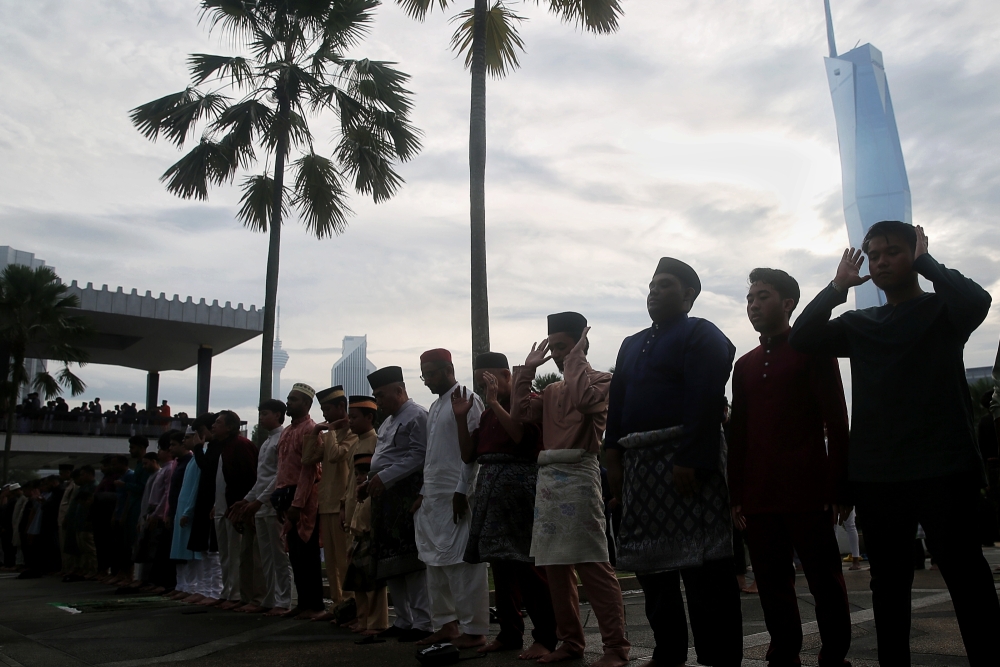
Points of contentions
Some provisions within the Bill have caused controversy, leading to resistance among some religious scholars and politicians.
The controversy centres on the requirements to be a mufti and issue fatwas in Sections 3(2) and 3(4), which include adherence to the:
- Sunni denomination
- Shafie school of jurisprudence
- Ash'arism and Maturidism schools of theology
- Teachings of Imam al-Ghazali and Imam Junaid in Sufism
What do these mean?
Sunni — The Sunni are the biggest branch in Islam, comprising around nine in 10 Muslims worldwide. The requirement would effectively exclude other denominations such as Shia and Ahmadis, which are generally regarded as either heretic or deviant locally.
Shafie — This is one of the four schools of jurisprudence in Sunni Islam, also called “mazhab”, which influence Shariah laws. The other three are Hanafi, Maliki and Hanbali, although none is opposed to any other. The Bill states that a fatwa can also refer to other schools besides Shafie if needed.
Ash'arism and Maturidism — There are several schools of theology in Sunni Islam, with the other popular one being Atharism. Their opinions differ on matters such as rationalism, free will, and strictness in interpreting religious texts.
Imam al-Ghazali and Imam Junaid — There are many prolific teachers of Sufism, which concerns the spiritual aspects of Islam. The two were respected Persian polymaths educated in Baghdad, with the former also known as Algazel in the Western world.
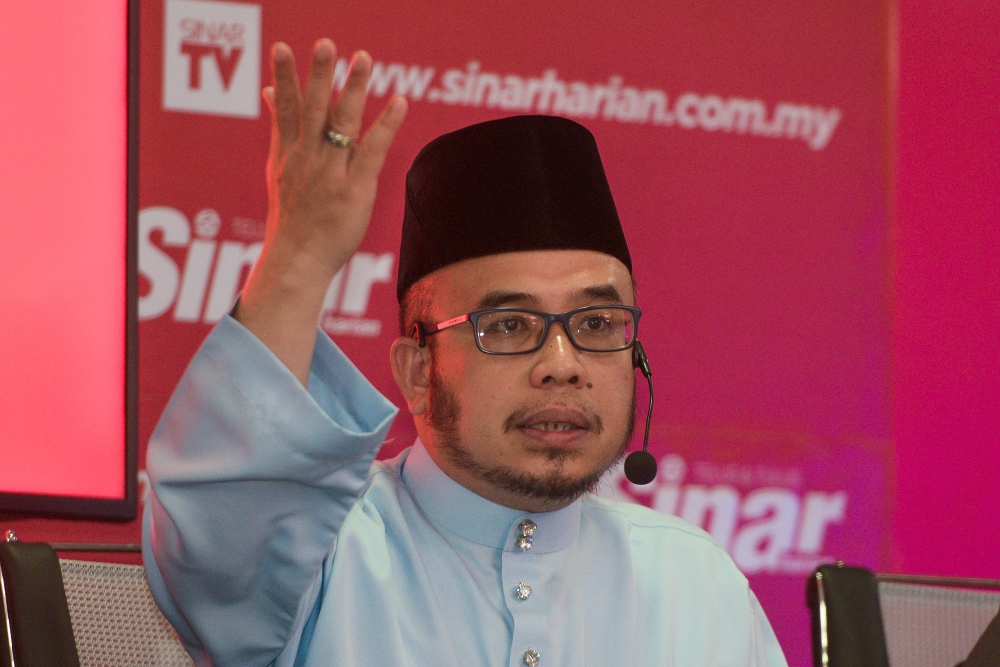
Where is the resistance coming from?
Perlis Mufti Datuk Mohd Asri Zainul Abidin was among the biggest critics of the restrictions, calling for Putrajaya to represent the diversity within the public and the religion.
On his Facebook page on July 2, Asri warned that “rigidity would lead to fanaticism and hatred between the people and the government”.
“It is not appropriate for the Government to pass any legislation or enactment that restricts the thinking of the people, seizes freedom of thought and academic freedom, especially in the name of religion. The Madani Government should adopt a ‘civilised’ approach or bring broad and open-minded civilization thinking.”
He was also supported by his state’s Ruler, Tuanku Syed Sirajuddin, who said that he did not consent to the Conference of Rulers being named as a supporter of the Bill. He has since released a royal statement backing Asri’s arguments.
Tan Sri Abdul Hadi Awang, the president of Islamist party PAS, has also called for the Bill to reviewed, criticising the need for an “official” Islamic strain. He was quoted by PAS' news HarakahDaily telling the media at the sidelines of Kelantan MBI International Conference 024 on July 10:
“The government cannot set such a stipulation because [Imam Malik, Imam Shafie, Imam Hanafi or Imam Hanbali] had never issued any directive for their thoughts to be used as a guide for a country. They only mentioned that Islam should be the religion of the state.”
However, nine state muftis have expressed
their support so far: Federal Territories, Perak, Selangor, Sabah,
Pahang, Kedah, Negeri Sembilan, Terengganu, and Melaka. - Malay Mail, 17/7/2024
“Suppose the FT Mufti issues a fatwa (a ruling on Islamic law by a recognised authority) that all tobaccos are haram or Muslims must only eat in restaurants with a halal certificate on display, such law will be enforced throughout FT.”
For context, the government plans to proceed with the second and third readings of the Mufti Bill (Federal Territories) 2024 on Oct 16 or 17, according to Minister in the Prime Minister’s Department (Religious Affairs) Datuk Dr Mohd Na’im Mokhtar.
The first reading of the bill had already taken place during the last Parliament session. Na’im added that a decision regarding the Mufti Bill is expected to be known this year with the Bill being debated in the Dewan Rakyat before being presented to the Dewan Negara.
Muslims rob of constitutional rights
Previously, media reports indicated that the first reading took place in July with the Mufti Bill (FT) 2024 being one of three bills related to Islamic affairs presented for amendment.
The bill aims to define the Ahli Sunnah Wal Jamaah from the perspectives of the al-Asyairah and al-Maturidiah schools of thought.

Zaid further contended that once the Parliament passes the said law, other states will follow, eventually resulting in “the whole Federation being ruled by Muftis”.
“If I walk in to have my sushi or oyster bar at BSC (Bangsar Shopping Centre), I commit an offence for such places do not usually carry the halal sign,” fumed the former defence counsel of now incarcerated former premier Datuk Seri Najib Razak.
“Do I have any personal liberties left, a constitutional right to eat wherever I please? Under Madani, no.
“What happens to democracy and religious freedom? What if the Muftis ruled that Muslims could no longer shake hands with their female colleagues? Or deny Muslims to wish Merry Christmas? Or Happy Deepavali?”
In Zaid’s opinion, there is now no need to pass such a law at the state legislative assembly level given a mere issuance of an edict or fatwa can be deemed as suffice.
“We have elections in the country to select the people’s representatives who then make laws for the country. Now, an unelected religious officer called the Mufti can do that on his own,” the founder of Zaid Ibrahim & Co, the largest private law firm in Malaysia (which he no longer owns) further ranted.
“Don’t the Malay rulers worry that they may be deprived of their powers one day? What if there is an edict that the position of Malay Rulers as head of the religion is un-Islamic since the Khalifah has to be vested in a person who is well-learned in Islamic knowledge and qualified Imam?
“The wise guys in Putrajaya need to be careful in their relentless
drive towards Islamisation of the country. They may not like what they
wish for.” – Oct 7, 2024, Focus Malaysia
COMMENT | Being a Muslim used to be so easy. One believed in Allah and observed the five pillars of Islam to lead one’s life as a good and responsible Muslim.
Today, conservative Muslims and wannabe clerics do the religious equivalent of blinding one with science. They litter their speeches with Arabic and line their policies with tongue-twisting theological phrases, to convince the masses that they are super religious or brilliant.
Nothing could be further from the truth.
It is doubtful that many Malays can comprehend what they are saying, and some Malaysians would probably agree that quantum mechanics would be easier to understand.
On July 2, one of the most oppressive bills to be tabled in Parliament, the Federal Territories Mufti Bill 2024, had its first reading in the Dewan Rakyat.
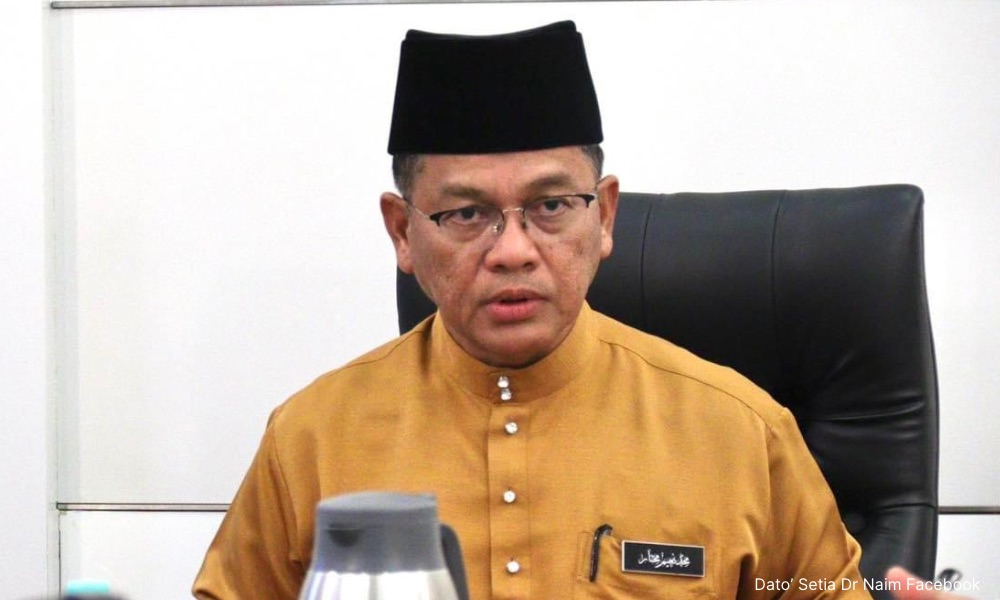
The Minister in the Prime Minister’s Department (Religious Affairs) Mohd Na’im Mokhtar introduced the bill and unsurprisingly, few of us paid any attention to it.
This is probably because every other day, at least one religious issue will dominate the news, despite there being more important priorities to focus on.
Sweeping powers
Next week, the bill will have its second and third reading in Parliament, before it is voted on and made into law.
This time, it must not escape our intense scrutiny yet again.
When it was first tabled, few of us were aware. Had Muslim MPs been lobbied to support this oppressive bill, while non-Muslim MPs had no clue what it was all about?
You should be worried about this bill because it represents a fundamental attack on our personal freedom and our democracy.
If passed, the bill will give unprecedented sweeping powers to unelected officials to dictate what we can, or cannot do.
Enslaved by religion
Months earlier, the Umno Baru Youth leader, Dr Muhamad Akmal Saleh warned non-Muslims not to interfere with Islamic matters.

So, were the halal issues at the time, being used as a smokescreen for laying the groundwork to silence any opposition by non-Muslim MPs towards this controversial bill?
Na’im, Prime Minister Anwar Ibrahim, and Bangi MP Syahredzan Johan, are trying to make out that the bill is relatively harmless.
Malaya may have achieved Merdeka 67 years ago, but Muslims are still enslaved by religion. The Malay mind is mummified and shaped by ignorance and dogma, while the non-Malays have been browbeaten into submission and silence.
The government will attempt to push this bill before the rakyat realises how serious the matter is.
These are the worst bits of the bill.
The bill is unconstitutional and our blind submission to it will mean that we transition from a democracy to authoritarian rule in Malaysia.
The bill is divisive, it gives unelected people, like the muftis, whose qualifications we do not know, absolute control over our lives.
Will the muftis have more power than the king when it comes to religious matters?
Interpretation of fatwa

Although we know that a fatwa is merely an opinion, this is after all Malaysia, and the fatwa will be interpreted according to the whims of these muftis.
They will have over-arching powers to sanction anyone whom they think has broken the fatwa. The fatwa will be set in stone just like any law that has been passed.
At the same time, the same unelected muftis will be immune from prosecution. What sort of governance is this? Lives may be destroyed, but these muftis will escape punishment.
When one state adopts it, others will follow suit, including Sarawak and Sabah.
You may not think it, but the bill will have serious consequences because it is a clash between two sets of laws, civil and syariah.
In 1988, two significant amendments to Article 1216 of the Federal Constitution were made. Our supreme law is the Federal Constitution, but ever since 1988, the powers and jurisdiction of the syariah courts have slowly been expanded beyond the limits permitted by the Constitution.
In October 2024, the syariah courts will overstep their boundaries yet again, and the civil courts will be powerless to stop them because of the way Article 121(1A) has been interpreted.
Non-Muslims also impacted
Despite what the non-Muslims will have been told, the bill will affect us all, both Muslims and non-Muslims.

There are some notable critics of this bill besides Sisters in Islam and some high-profile lawyers.
Perlis ruler Tuanku Syed Sirajuddin Putra Jamalullail objected to the use of the Council of Rulers’ name to support the bill.
Perlis mufti Mohd Asri Zainul Abidin, another critic, warned about Sunni sectarianism and that “rigidity would lead to fanaticism and hatred between the people and the government”.
PAS president Abdul Hadi Awang wanted the bill to be reviewed and he criticised the need for an “official” Islamic strain.
When the Perlis ruler objected, Anwar said the experts would deliberate on the matter.
Controlling dissent
In 21st-century Malaysia, this is how the rakyat is kept strictly in line. Politicians control dissent by bullying us with draconian laws, while the muftis claim to save our souls via fire-and-brimstone sermons, promises of rewards in heaven, and threats of endless punishment in hell.
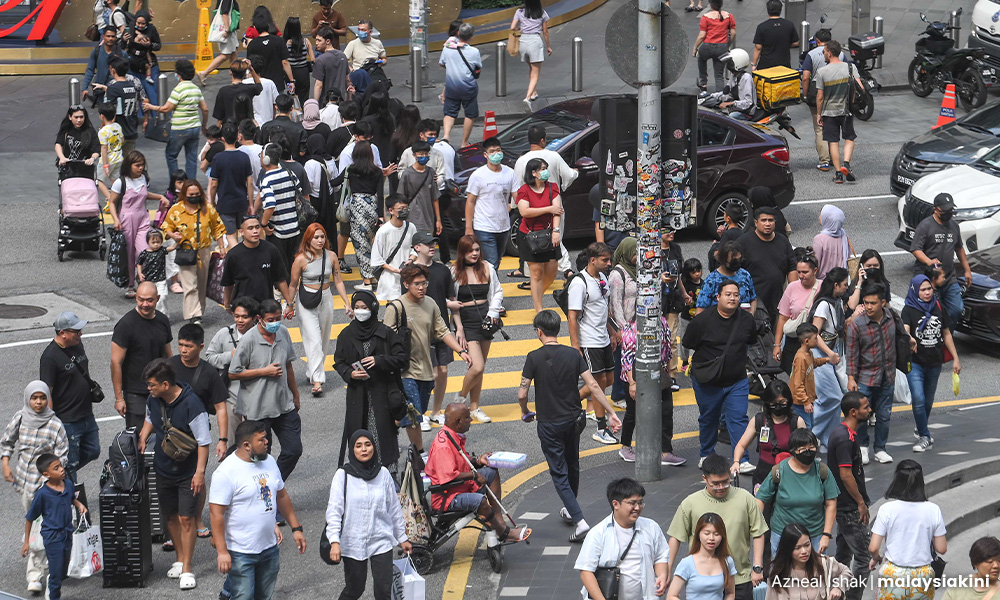
In a nutshell, both politicians and clergy carve up the nation for themselves.
They enter into a marriage of convenience because they need one another to maintain their hold on power, and specifically to control you.
We thought that Na’im was one of the more “progressive” syariah judges. We were wrong.
Was Na’im under instruction to implement this bill as part of the bigger plan to Islamise Malaysia?
Or is the FT Mufti Bill 2024 part of Anwar’s unfinished business? Is he merely completing what he started in 1982 but was unable to finalise because he was ousted from office in 1998?
It is not too late to stop this bill. - Malaysiakini, 11/10/2024
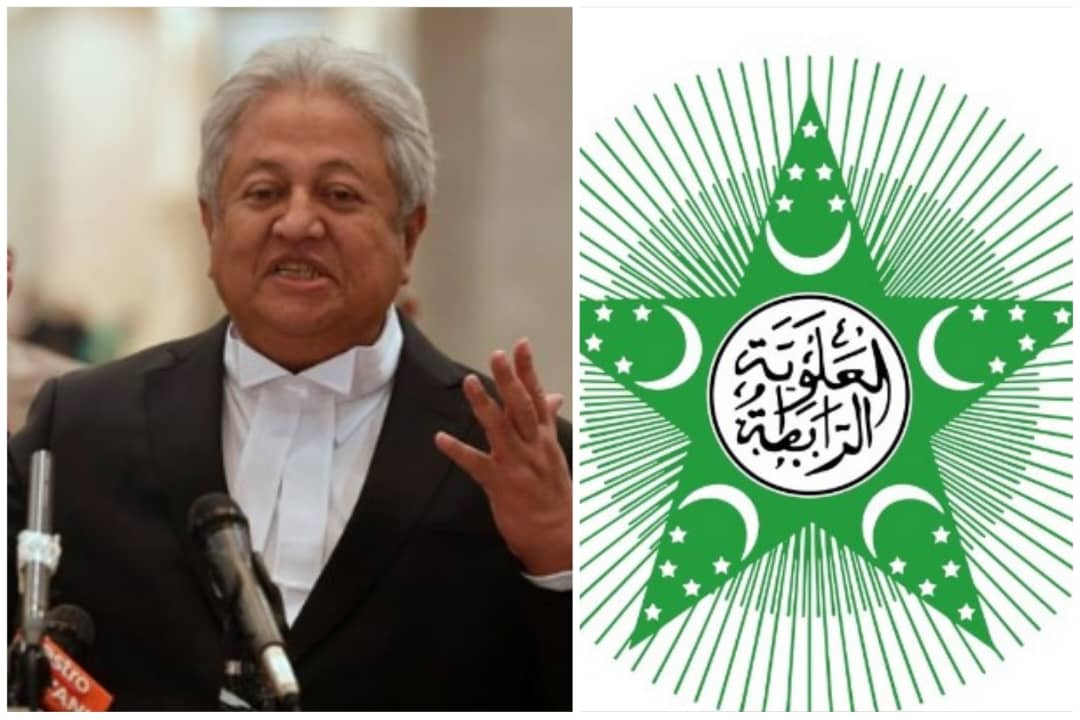




No comments:
Post a Comment